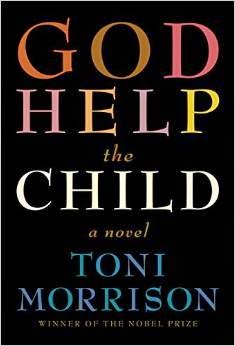This content is being reviewed in light of recent changes to federal guidance.
In Toni Morrison’s Latest Novel, Black (Children’s) Lives Matter

In her review of Toni Morrison’s eighth novel, Love, English writer Hilary Mantel asserts: “when Morrison writes at her best, you can feel the workings of history through her prose.” An accurate description, if ever there was one, for the novelist who is often described as the voice of America’s conscience.
For many, it is Morrison’s achievements in Beloved, the Pulitzer prize-winning novel that examines the impact of slavery as trauma affecting both individual and collective African-American identity, that make all labels of praise worthwhile and deserving. Of course, since Beloved, Morrison has written other novels (six, including the latest). All have been critically acclaimed and all have touched on different stages of American history and the role of black Americans within it.
In her latest work, God Help the Child, Morrison returns to both familiar and different terrains.
Familiar are the themes: fractured mother/child relationships, childhood traumas and difficult self-image, among others. Different, however, are the perspectives from which she examines these themes. The novel’s protagonist is Lula Ann Bridewell, who as an adult renames herself ‘Bride’–an attempt to forge an image and life for herself that is wholly separate from her childhood. As an adult, Bride is a successful professional in the beauty industry, but as a child, she suffered physical and emotional abuse rooted in her mother’s rejection of her because of her skin colour. Sweetness, Bride’s mother, is light-skinned–“high yellow”–and so are her ancestors (who in the past, were able to ‘pass’ as whites). However, when Bride is born, she is not only visibly black, but “midnight…Sudanese black.” Frightened at what she has given birth to and unable to explain it to herself, her husband and society at large, Sweetness rejects Bride, refusing even to touch her, and puts all her energy into raising Bride with no illusions about what her very black skin entails in a white world. However, what Sweetness does not realise is that it is not the white world she needs to fear, but the lengths Bride will go to in order to connect with her and the result of their actions on both of their futures.
God Help the Child is reminiscent of Morrison’s earlier works. In Bride, we are reminded of characters such as The Bluest Eye‘s Pecola Breedlove, Song of Solomon‘s Pilate Dead and even the title character of Beloved. However, what is different about this novel is the introspective examination it forces on black characters and readers alike. In a recent interview, Morrison stated: “I’m writing for black people … I don’t have to apologise.” This is so evident in God Help the Child, where the setting is contemporary (Bride was born in the 1990s, and there are even references to the Internet and its stifling influence on creativity) and characters are enjoying progresses that have been made in the fight for black equality and justice in America.
However, among the social and political advances, the novel makes it clear that black characters (namely Bride and her mother, Sweetness) have yet to internalise those changes and are still living in the shackles of the past. That is, even though Bride grows up to live in a world where black is now beautiful and her skin colour is not such an issue for society to deal with as it was when she was born, her response to that change is only superficial; it adds to her professional advantage but does not contribute to an internal renewal of her mind. As a result, she is unable to confront her traumatic past and thus, even in the midst of positive changes in her life, she allows the past to still control her, which manifests in her relationship with Booker, the man she loves, and with Brooklyn, her white best friend, whom Bride trusts more than anything in the world, but whose loyalty towards Bride the text questions.
Like Morrison’s last two books, A Mercy and Home, God Help the Child is a thin volume packed with complex characters and their testimonies, which are not always reliable and which are remedied by the characteristic poetry of Morrison’s narrative voice interspersing the perspectives of individual characters.
Overall, the lesson in God Help the Child is two-fold. The first is a reminder that childhood matters because it is foundational to an individual’s life. The second is that whilst both personal and collective histories may inflict injuries beyond our control, we owe it to ourselves to confront them at their core, as doing so provides the only chance we have for preventing their recurrence.